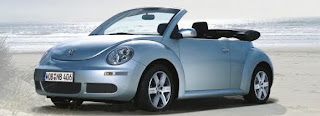 The world's leading car-maker Toyota continues to reel from the largest product recall in its history. The company had already shed US$31 billion in market value since late January when it stopped production and sales of eight vehicle models to fix problems with sticky accelerator pedals and loose floor mats. Yesterday its pain intensifed with the recall of 437,000 hybrid cars including the Prius, the company's green 'halo car' for a new era.
The world's leading car-maker Toyota continues to reel from the largest product recall in its history. The company had already shed US$31 billion in market value since late January when it stopped production and sales of eight vehicle models to fix problems with sticky accelerator pedals and loose floor mats. Yesterday its pain intensifed with the recall of 437,000 hybrid cars including the Prius, the company's green 'halo car' for a new era. But my post today isn't about the besieged brand in the spotlight. It's about the vulture brands circling around it.
GM and Ford have announced specific incentives targeted at unnerved Toyota owners in the US. "We want to make sure whoever's out there driving ... has a high-quality vehicle that's safe," a GM spokesperson told reporters during their announcement. Ouch.
 Volkswagen, on the other hand, has written to its dealers requesting them not to employ "predatory price cuts" to lure Toyota customers in the US away from the brand. The Chief Operating Officer of VW's North American unit stated that Toyota "faces unfortunate circumstances in the marketplace. We will remain an aggressive competitor without targeting any one manufacturer."
Volkswagen, on the other hand, has written to its dealers requesting them not to employ "predatory price cuts" to lure Toyota customers in the US away from the brand. The Chief Operating Officer of VW's North American unit stated that Toyota "faces unfortunate circumstances in the marketplace. We will remain an aggressive competitor without targeting any one manufacturer."In the jungle out there, marketshare cannot be achieved without mindshare. Putting aside Toyota, which is currently top of mind for all the wrong reasons, one brand has suddenly catapulted into the place of high awareness, high esteem. Volkswagen instinctively understands that values trumps results. Values mean doing the right thing when no one is looking and even when the consequences are difficult. Authentic brands earn respect by delivering on their brand promise and behaving the way they want others to behave towards them.
Volkswagen's actions reveal a brand strategy that articulates not just what it will do, but also defines what it will not do.
And what it didn't do this week, will generate results for a long time to come.



